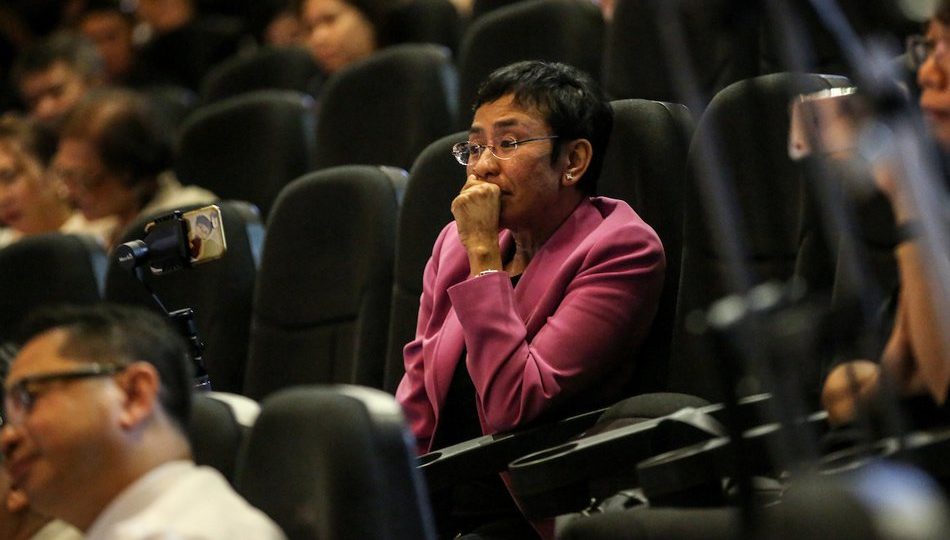A Manila court has reset the arraignment of embattled Rappler CEO and Executive Editor Maria Ressa for a cyber libel case filed by a local businessman.
The Manila City Regional Trial Court Branch 46 deferred the arraignment set for today to allow both Ressa and her co-accused former Rappler researcher Reynaldo Santos to file a motion for reconsideration after the Manila court denied their motion to quash the one count of cyber libel on Friday, Rappler reported.
Joseph Banguis, the lawyer of private complainant Wilfredo Keng, told ABS-CBN News that the arraignment was deferred to May 17.
Ressa and Santos were indicted by the Department of Justice (DOJ) for cyber libel for publishing a story in May 2012 that linked Keng to the late impeached Chief Justice Renato Corona.
Republic Act 10175 or the Cybercrime Prevention Act of 2012, which the DOJ used as its basis for the case, was signed on Sept. 12, 2012 — four months after the Keng article was first published. The DOJ said that Rappler could still be indicted because the article was supposedly republished on February 2014 due to typographical errors, ABS-CBN News reported.
In their motion sent to Judge Rainelda Estacio-Montesa, Ressa said they could not be accused of cyber libel because after the law was signed in September 2012, it was challenged before the Supreme Court, and a temporary restraining order (TRO) was issued against it.
The law came into full effect only in April 2014, the month in which the TRO was lifted, or two months after the supposed republication of the article.
However, Judge Montesa denied the journalists’ appeal to junk the charges on Friday (April 12). She said that cyber libel has a prescriptive period of 12 years, contrary to Rappler‘s claim that it was one year. In her order, Judge Montesa said that the case was filed on February 5, 2019, “which is well within the period of 12 years.”
Ressa told reporters when she arrived minutes before the scheduled arraignment today that she was surprised that the court denied their appeal to junk the case.
She was quoted saying by CNN Philippines: “Really shocked that in one stroke they would turn one year into 12 years for [the] prescription [period]. That’s huge. I guess this is a good test case [for cyber libel]. They can prove whether judicial independence exists.”
Ressa also took to Twitter yesterday, saying Judge Montesa’s groundbreaking ruling creates a “chilling effect” because this means all Facebook posts can now be held against a person for more than a decade.
Wow – ground-breaking ruling that creates a chilling effect. Other side is that all FB posts can now be held against you for more than decade! Court junks Ressa appeal, says cyber libel valid 12 years post-publication https://t.co/bi3Xl0aSku See you in court Tuesday!
— Maria Ressa (@mariaressa) April 15, 2019
Ressa has been in a string of various legal woes. She has also been indicted for tax evasion and for allegedly violating the anti-dummy law.
Meanwhile, Rappler also filed a petition on Friday asking the Supreme Court to end the ban imposed by President Rodrigo Duterte that prevents their reporters from covering his events. Duterte has previously called Rappler a “fake news outlet” with stories “rife with innuendos and pregnant with falsity.”
Ressa believes all charges from the government are politically-motivated. Duterte has denied this, however, many local and international media continue to support Ressa and Rappler.




